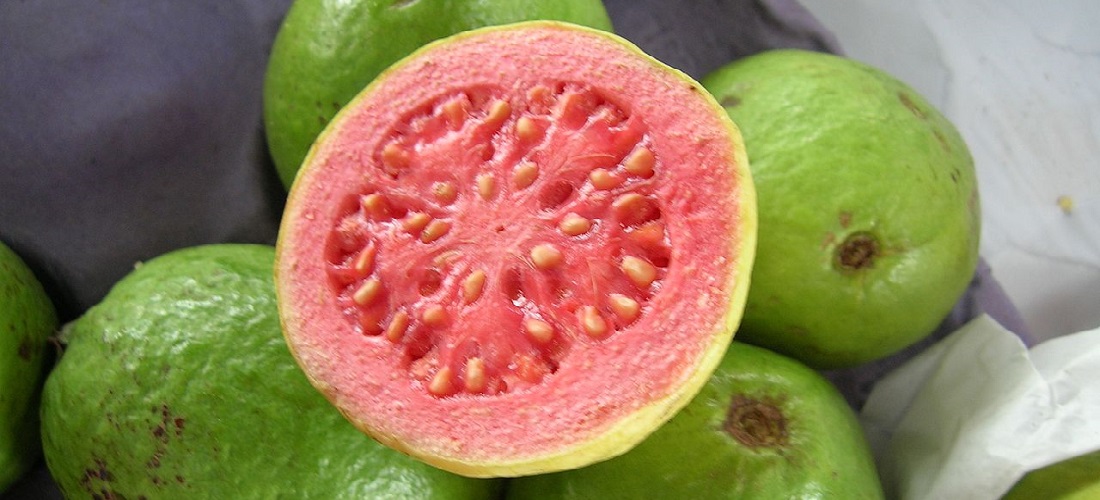
Brazil guava exports grow over 1000% in two years
Oct, 24, 2022 Posted by Gabriel MalheirosWeek 202243
Big, crunchy, tasty, resistant, and produced in a region with good tourism potential: the guava from the city of Carlópolis, in the state of Paraná, won, in 2016, the Geographical Indication (GI) seal, granted to products recognized by tradition and quality, which makes them unique in the world.
The guava from two municipalities in Paraná state has received the Carlópolis Geographical Indication seal: Carlópolis and Ribeirão Claro. Today, 36 fruit growers are associated with the Agroindustrial Cooperative and 10 of them already have the GI seal.
The visibility achieved with the Geographical Indication and the Global G.A.P (Good Agriculture Practices) certification has leveraged the exports of guava from Carlópolis. They grew by 1,142 percent in two years. A jump from 5.2 tons from January to June 2020 to 65.2 tons in the same period this year. England, Portugal, Canada, and the Middle East are the main destinations.
Carlópolis Agroindustrial Cooperative sales manager and also certified guava producer Inês Sasaki has been participating in international fairs. “I went to Spain. And we took our guava. Everyone was amazed at the quality we have,” she said proudly.
She explained that the foreign market stipulates a fixed price for the fruit, higher than the domestic market, which registers oscillations throughout the months. “In January and February, the price of a kilo in Brazil stood at around BRL 2. In May the price started oscillating between BRL 2 and BRL 3, and in August it reached BRL 4.50 a kilo, while abroad – from January to August – it was sold for BRL 4 without any variation.”
Sasaki said the reduction of pesticides was essential. “Every year, we test the fruit in laboratories, to see if there are no residues, and also the water, to prove that it is not contaminated.”
The positive result has been achieved due to the bagging technique that avoids guava flies. “From the moment we bag the fruits, we use no products. They stay around 60 days bagged without agrochemicals. So, we do all this work manually, it is difficult, but it is a safe process for both the producer and the consumer,” she explains.
Other factors that make the guava from Carlópolis special are the thickness of the peel and the size of the fruit.
It has a thicker peel that makes it more resistant during transportation, certified producer Rodrigo Viana explains. He says the guava variety grown in this GI can weigh an average of 500 grams or more, and due to its big size, it is considered a ‘table’ guava.
Geographical Indication
The Brazilian Service of Support to Micro and Small Enterprises Sebrae has helped map and implement GIs throughout the country. Currently, 92 are recognized by the National Institute of Industrial Property (INPI).
Innovation analyst at Sebrae Hulda Giesbrecht explains that 69 out of these 92 correspond to the indication of origin modality, which has its registration based on the reputation of the region where they are produced, and 23 correspond to the denomination of origin modality, in which a scientific technical study proves the characteristics and qualities of the product, considering the natural and human factors of the region. In the case of GI Carlópolis, the guava corresponds to an indication of origin.
Source: Agência Brasil
To read the full original article, please go to: https://agenciabrasil.ebc.com.br/en/economia/noticia/2022-10/caminhos-da-reportagem-shows-brazilian-guava-won-world
-
Oil and Gas
May, 05, 2022
0
Oil prices increased by $110 after the EU proposed a ban on Russian oil
-
Shipping
Mar, 10, 2023
0
MSC receives largest container ship in the world
-
Automotive
Dec, 27, 2023
0
Vila Velha Port unleash vehicle imports surge with strategic expansion
-
Other Logistics
Jul, 22, 2019
0
Friozem Logística inaugurates new distribution center in Rio de Janeiro

